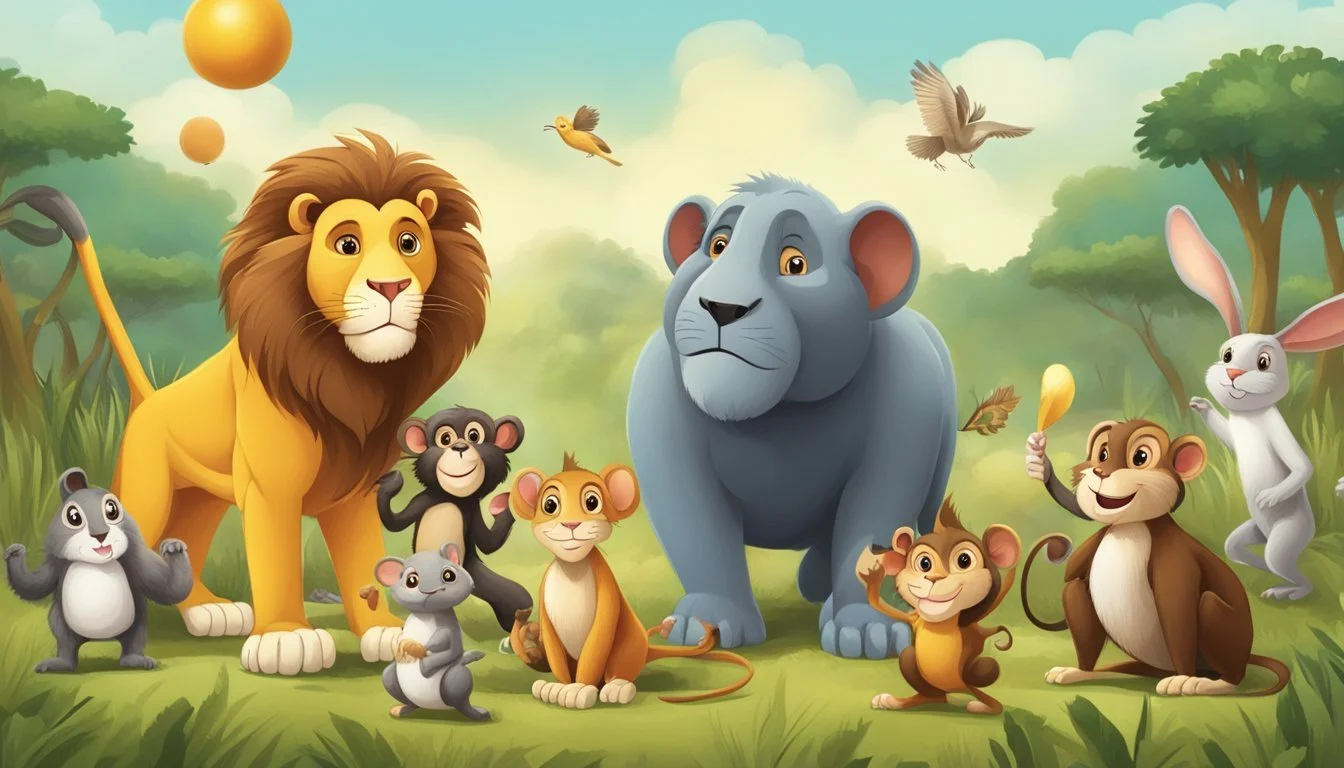Unlock the Secrets of Bolt Personality Types: Are You a Loyal ISTJ Like Bolt?
Personality types offer fascinating insights into how individuals think, feel, and behave. In the realm of animated characters, few are as compelling as Bolt, the canine protagonist of Disney's 2008 film. Bolt's personality exemplifies loyalty, determination, and a strong sense of duty.
Bolt embodies the traits of an ISTJ personality type, characterized by his practical nature, attention to detail, and unwavering commitment to his perceived mission. This personality type, often described as "The Inspector" in Myers-Briggs terminology, aligns perfectly with Bolt's steadfast dedication to protecting his owner, Penny, even when faced with challenging circumstances.
Understanding Bolt's personality type provides viewers with a deeper appreciation of his character arc throughout the film. As an ISTJ, Bolt's journey from a sheltered TV star to a self-aware companion reflects the growth and adaptability often seen in individuals with this personality type when confronted with new realities. This exploration of Bolt's character through the lens of personality types adds an extra layer of depth to the animated adventure.
Understanding BOLT Personality Framework
The BOLT personality framework categorizes individuals into four distinct types based on their behavioral tendencies and traits. This system provides insights into communication styles, decision-making processes, and interpersonal dynamics.
Origins and Fundamentals
The BOLT framework was developed as a tool for understanding and predicting human behavior in various contexts. It draws inspiration from earlier personality theories but offers a simplified approach with four main types: Bulls, Owls, Lambs, and Tigers.
Bulls are direct, decisive, and results-oriented. They thrive on challenges and prefer to take charge in situations. Owls are analytical, detail-oriented, and methodical in their approach. They excel at problem-solving and critical thinking.
Lambs are empathetic, supportive, and relationship-focused. They prioritize harmony and cooperation in group settings. Tigers are energetic, enthusiastic, and spontaneous. They enjoy social interactions and are often the life of the party.
BOLT Personality Types
The four BOLT personality types each have distinct characteristics that influence their behavior and interactions:
Bulls:
Confident and assertive
Goal-oriented and competitive
Quick decision-makers
May come across as domineering
Owls:
Logical and systematic
Prefer facts and data
Cautious in decision-making
Can appear aloof or detached
Lambs:
Patient and understanding
Team players and mediators
Avoid conflict when possible
May struggle with assertiveness
Tigers:
Outgoing and charismatic
Adaptable and flexible
Enjoy variety and new experiences
Can be impulsive or easily distracted
Understanding these types helps in team dynamics, leadership, and personal development. It's important to note that individuals may exhibit traits from multiple types, with one being more dominant.
Comparing BOLT with Other Personality Models
The BOLT personality model shares similarities with established frameworks like Myers-Briggs and Enneagram, while offering its own unique perspective on human behavior and traits.
BOLT and Myers-Briggs Type Indicator
BOLT and the Myers-Briggs Type Indicator (MBTI) both aim to categorize personality types, but use different approaches. MBTI focuses on four dichotomies: Extraversion/Introversion, Sensing/Intuition, Thinking/Feeling, and Judging/Perceiving. These combine to form 16 personality types like ISTJ, ENFP, INTJ, and ENTJ.
BOLT, on the other hand, emphasizes behavioral patterns and preferences in specific contexts. While MBTI might describe someone as an ENTJ, BOLT would examine how that person behaves in various situations, such as problem-solving or team interactions.
Both models can provide insights into individual differences, but BOLT tends to be more flexible in its application across different scenarios.
BOLT and the Enneagram Model
The Enneagram model identifies nine distinct personality types, each with core motivations and fears. BOLT shares the Enneagram's focus on underlying drivers of behavior but differs in its approach to categorization.
Enneagram types, such as Type 7 (The Enthusiast) or 7w6 (Seven with a Six wing), offer deep insights into a person's core desires and anxieties. BOLT, in contrast, examines how these motivations manifest in observable behaviors and decision-making patterns.
While the Enneagram provides a fixed set of types, BOLT allows for more nuanced combinations of traits and behaviors. This flexibility can be particularly useful in professional settings where adaptability is key.
Detailed Personality Profiles
Bolt personality types encompass four distinct categories, each with unique traits and tendencies. These profiles offer insights into how different individuals approach challenges, relationships, and decision-making.
Bulls: Focused and Stable
Bulls exhibit a strong sense of loyalty and security-seeking behavior. They approach tasks with dedication and persistence, often excelling in environments that require sustained focus. Bulls value stability and routine, making them reliable team members and partners.
These individuals tend to be practical and grounded. They prefer concrete facts over abstract theories, using their sensing abilities to gather information from their surroundings. Bulls often demonstrate a protective nature towards loved ones.
In work settings, Bulls thrive on clear expectations and tangible goals. They excel at methodical, step-by-step processes and can be counted on to see projects through to completion.
Owls: Logical and Methodical
Owls embody a logical, analytical approach to life. They possess sharp minds and excel at problem-solving through systematic thinking. These individuals value independence and often prefer working alone or in small groups.
Owls tend to be introverted, drawing energy from solitude and deep thought. They approach decisions with careful consideration, weighing pros and cons before acting. Their logical nature makes them adept at spotting inconsistencies and flaws in arguments.
In professional settings, Owls shine in roles requiring research, analysis, and strategic planning. They excel at breaking down complex problems into manageable parts. Owls may struggle with expressing emotions but can form deep, meaningful connections with those who share their intellectual interests.
Lambs: Friendly and Cooperative
Lambs prioritize harmony and cooperation in their interactions. They possess a natural empathy that allows them to understand and connect with others easily. These individuals often act as mediators in conflicts, striving to maintain peace within their social circles.
Feeling-oriented, Lambs make decisions based on emotions and values rather than pure logic. They excel in roles that involve supporting and nurturing others, such as counseling or teaching. Lambs thrive in collaborative environments where teamwork is valued.
Their cooperative nature sometimes leads to difficulty in asserting personal boundaries. Lambs benefit from learning to balance their desire to please others with self-care and personal growth.
Tigers: Confident and Adventurous
Tigers exude confidence and thrive on excitement. These extroverted individuals seek out new experiences and challenges with enthusiasm. They possess natural leadership qualities and often inspire others with their charisma and energy.
Adaptable and quick-thinking, Tigers excel in dynamic environments that require fast decision-making. They trust their instincts and are willing to take calculated risks to achieve their goals. Tigers enjoy being in the spotlight and often gravitate towards competitive fields.
In social settings, Tigers are outgoing and charismatic. They form connections easily but may struggle with long-term commitments due to their desire for novelty. Tigers benefit from learning to balance their adventurous spirit with thoughtful planning and consideration of long-term consequences.
Personality in Action
BOLT personality types significantly influence how individuals approach their careers, relationships, and personal growth. These characteristics shape decision-making, communication styles, and overall life trajectories.
Career and BOLT Types
BOLT personalities often thrive in dynamic work environments. Extroverted types excel in sales, marketing, and leadership roles, leveraging their charisma and confidence. They adapt quickly to new situations and enjoy taking on challenges.
Introverted BOLT types may prefer careers in research, analysis, or technical fields. Their logical approach and attention to detail make them valuable in roles requiring precision and focus.
Optimistic BOLT types tend to pursue entrepreneurial ventures or creative professions. Their enthusiasm for new experiences drives innovation and risk-taking in their careers.
Relationships and Social Dynamics
BOLT personalities impact social interactions and relationships in distinct ways. Extroverted types often have large social circles and enjoy being the center of attention. They form friendships easily but may struggle with deep, long-term connections.
Introverted BOLT individuals typically maintain smaller, closer-knit groups of friends. They value loyalty and depth in relationships, preferring quality over quantity in their social connections.
Spontaneous BOLT types bring excitement to social situations. They're always ready for adventure and can inspire others to step out of their comfort zones.
Personal Growth and Self-Understanding
BOLT personalities influence how individuals approach personal development. Confident types may focus on achieving ambitious goals and pushing their limits. They often seek out challenges to prove their capabilities.
Impulsive BOLT types might work on developing patience and thoughtfulness. Learning to balance spontaneity with careful consideration can lead to more balanced decision-making.
Introverted BOLT individuals may prioritize self-reflection and introspection. Understanding their own needs and boundaries helps them navigate social situations more comfortably.
Enneagram Type 7, known as "The Enthusiast," aligns closely with certain BOLT types. These individuals often focus on personal growth through new experiences and learning opportunities.
Applications of BOLT Typology
BOLT typology offers valuable insights into personality traits and behaviors. Its applications span various domains, providing a framework for understanding individual differences and improving interactions.
In Business and Management
BOLT typology enhances team dynamics and leadership effectiveness. Managers use it to assign roles based on personality strengths. Extroverted types often excel in client-facing positions, while introverts may thrive in analytical roles.
ENTJ types frequently emerge as natural leaders, utilizing their strategic thinking and decisiveness. ESFP personalities can energize teams with their enthusiasm and adaptability.
Companies implement BOLT-based training to improve communication and reduce conflicts. This approach helps diverse teams collaborate more effectively by recognizing and respecting different work styles.
HR departments use BOLT profiles in recruitment to ensure a good fit between candidates and job requirements. This method can lead to higher job satisfaction and reduced turnover rates.
In Education and Training
Educators apply BOLT typology to tailor teaching methods to different learning styles. Visual learners benefit from diagrams and charts, while kinesthetic learners prefer hands-on activities.
Schools use BOLT assessments to guide students in choosing academic paths and extracurricular activities that align with their personalities. This can lead to increased engagement and academic success.
Teachers use BOLT insights to create balanced group projects, combining different personality types for optimal outcomes. This approach fosters collaboration and exposes students to diverse perspectives.
BOLT-based workshops help students develop self-awareness and improve their interpersonal skills. These sessions can be particularly beneficial for introverted students, helping them navigate social situations more comfortably.
In Personal Development
Individuals use BOLT typology for self-improvement and career planning. Understanding one's personality type can reveal strengths to leverage and areas for growth.
BOLT insights help people choose hobbies and activities that align with their natural inclinations. Perceiving types often enjoy flexible, spontaneous pursuits, while Judging types may prefer structured activities.
Relationship counselors use BOLT profiles to help couples understand each other's communication styles and needs. This can lead to improved empathy and conflict resolution skills.
BOLT typology aids in stress management by identifying personalized coping strategies. Introverts might recharge through solitary activities, while extroverts may seek social interactions to reduce stress.
Life coaches incorporate BOLT assessments to help clients set meaningful goals that resonate with their core personality traits. This alignment often leads to greater motivation and success in achieving personal objectives.




